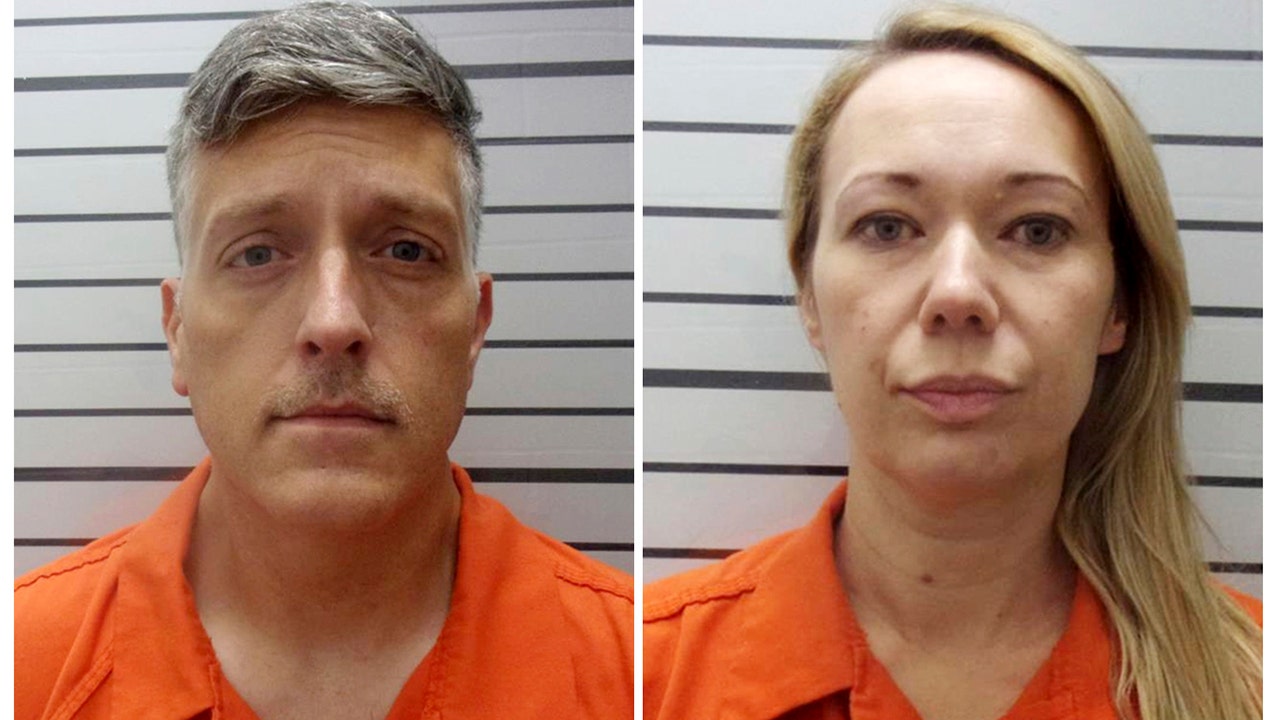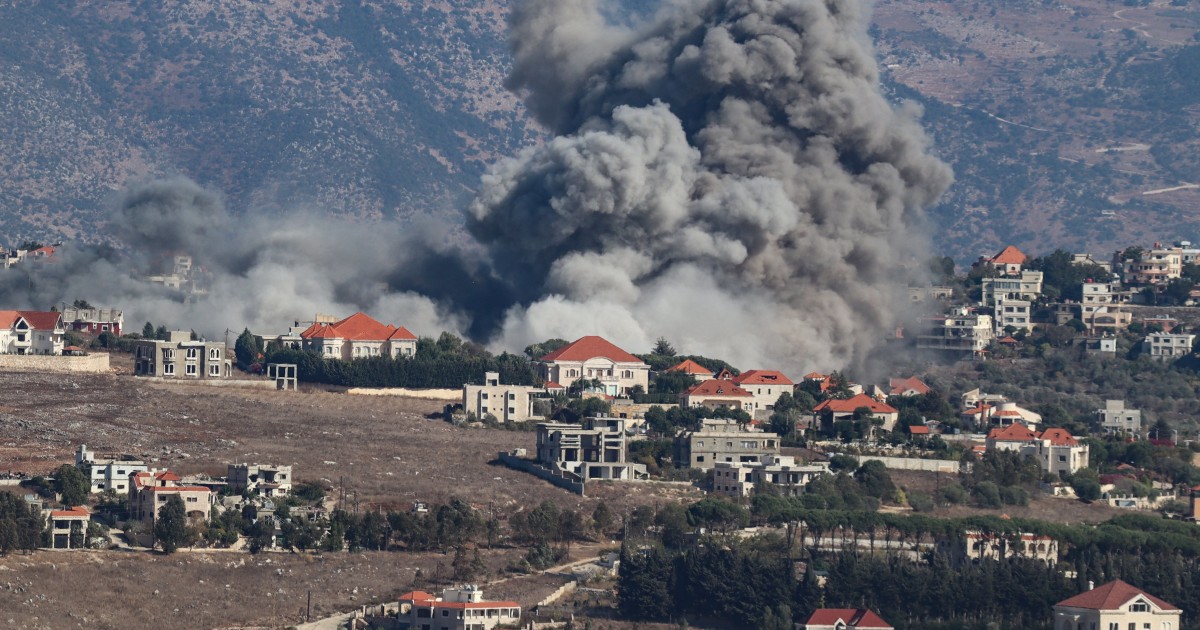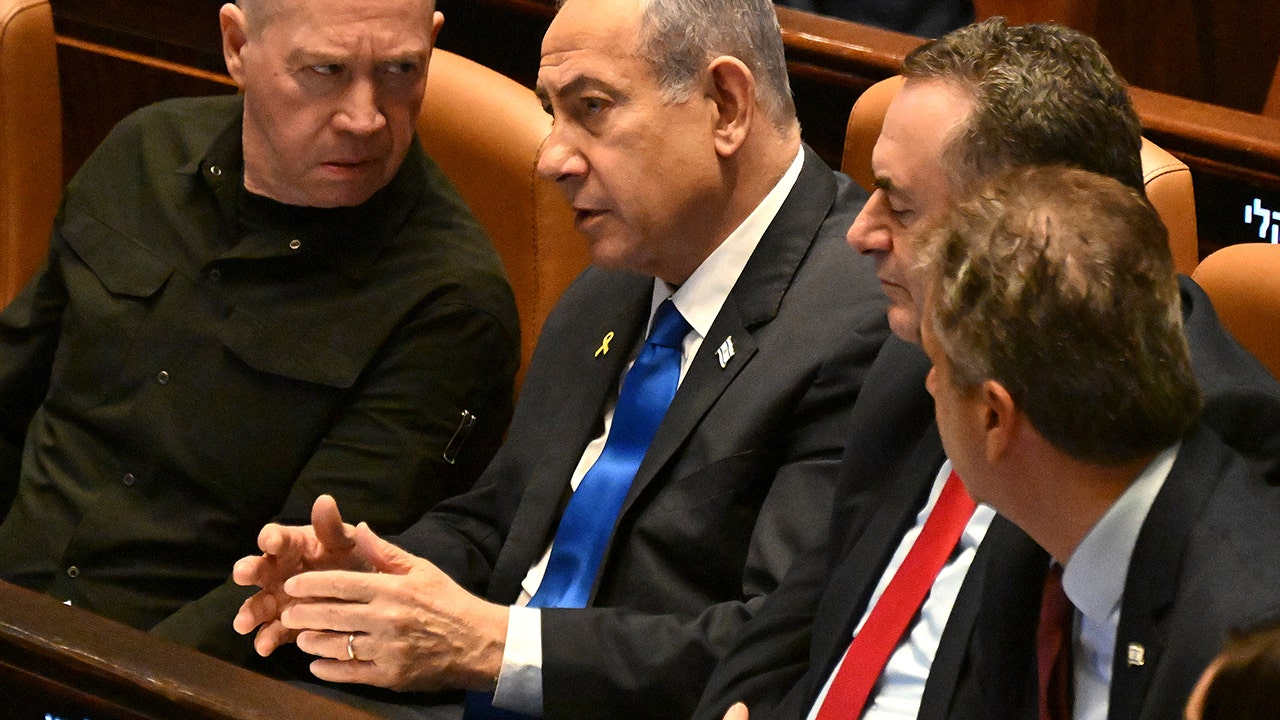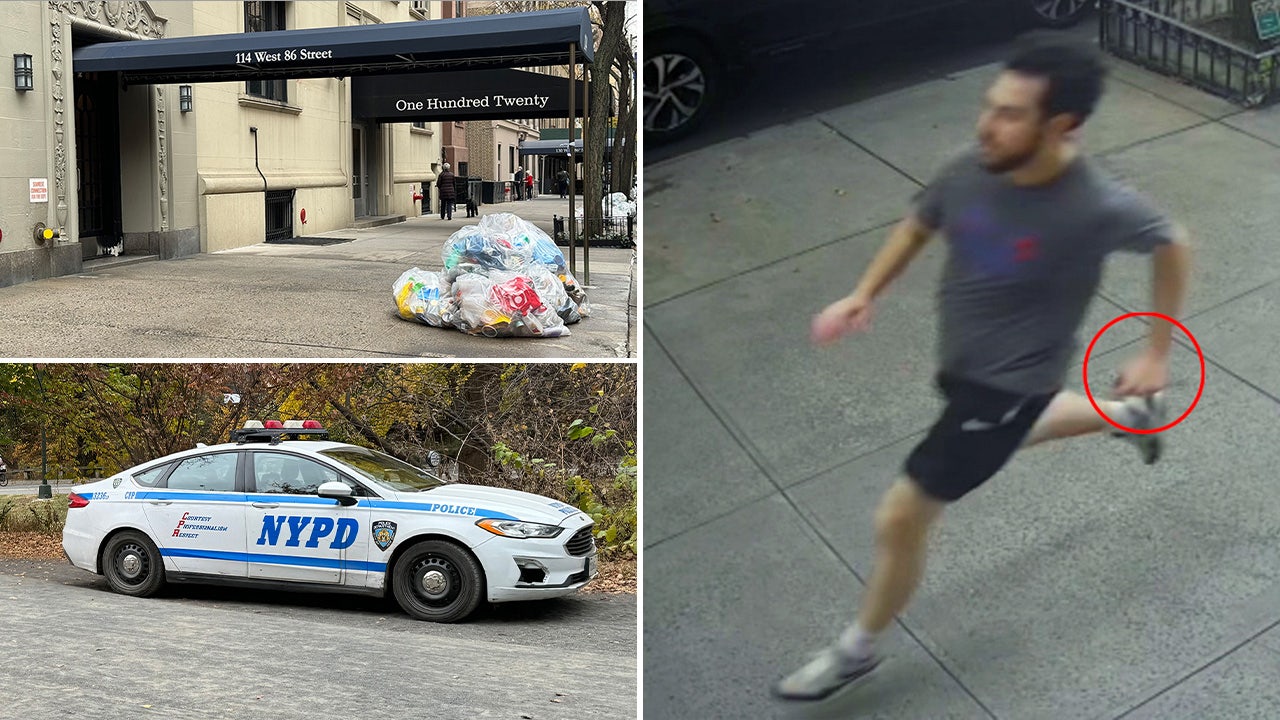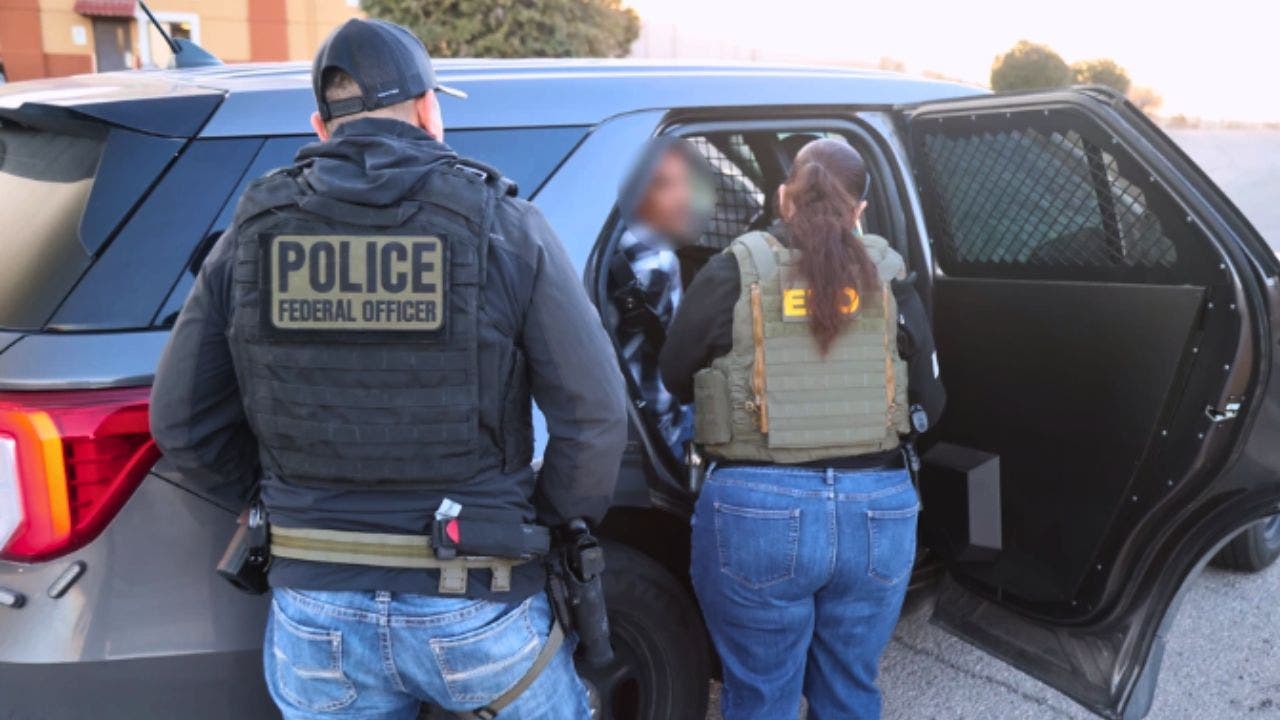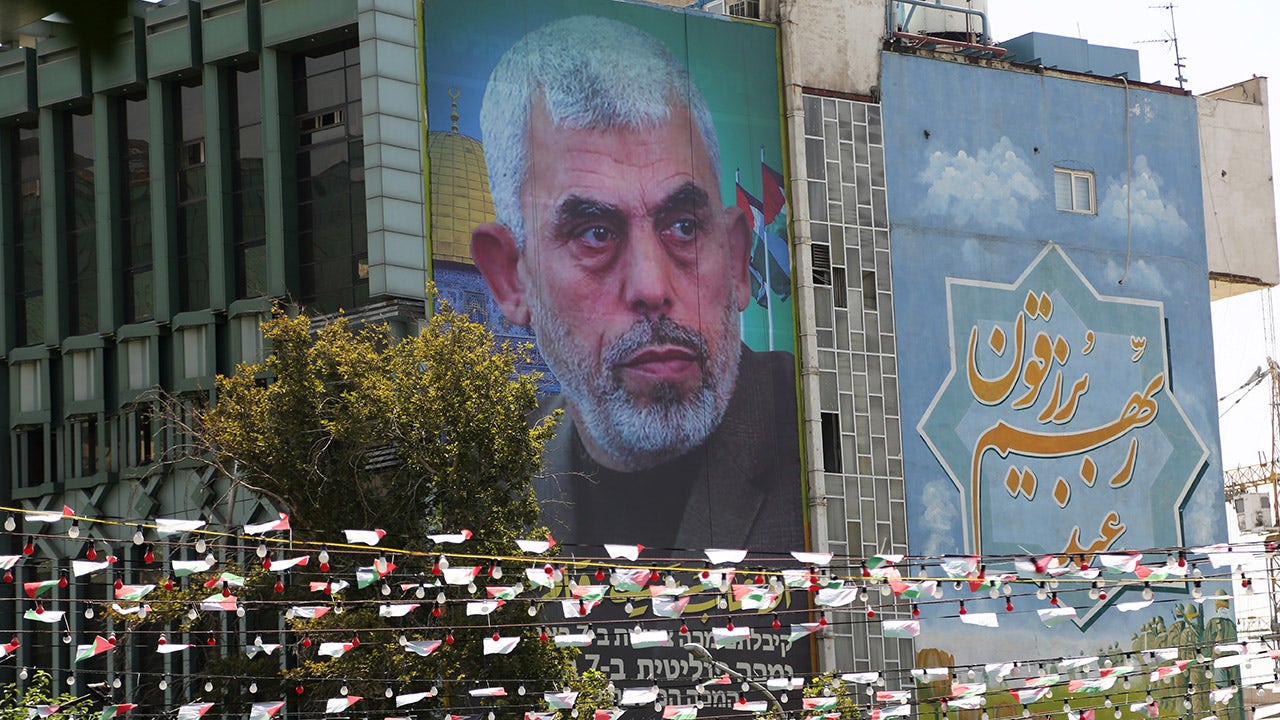UNICEF director condemns the killing of Palestinian children in strikes on schools
Adele Khodr, UNICEF’s regional director for the Middle East, decried the death of Palestinian children after four schools were struck in Gaza this last week.
A school in the Jabaliya refugee camp was hit just today and 11 people were reportedly killed, Khodr noted in a post on X.
“Horrifying footage shows children are among the casualties,” Khodr wrote. “This school — used as a center in the recent polio vaccination campaign — is now totally destroyed.”
Gaza children’s education set back 5 years, study from UNRWA and Cambridge finds
Palestinian children in Gaza are at risk of becoming a “lost generation,” according to a joint study between Cambridge University and the United Nations’ agency for Palestinian refugees that analyzed the impact of war on their education.
UNRWA chief Philippe Lazzarini wrote about the completed study in a post on X, saying that the “continuous shock & suffering are shaping children’s world views, threatening their faith in the future + in human rights.”
The number of children under 10 who cannot read basic text has increased by at least 20%. The study also considered the impact of trauma on educators, which has “taken a tremendous toll on their ability to engage meaningfully in education.”
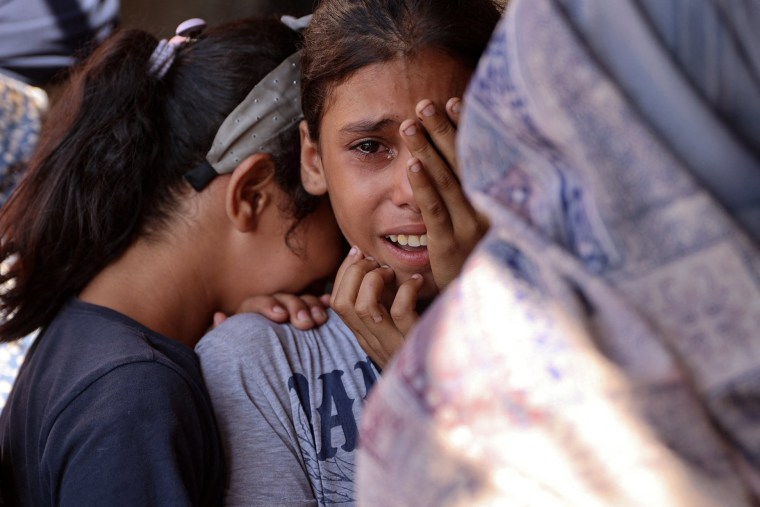
“The most optimistic prediction — assuming an immediate cease-fire and rapid international effort to rebuild the education system — is that students will lose two years of learning,” the study found. “If the fighting continues until 2026, the losses could stretch to five years.”
Israel’s air force preparing for potential ground offensive into Lebanon, chief says
Gen. Tomer Bar, chief of Israel’s air force, said it is working to stop “any possibility” of arms transfers between Iran and Hezbollah, which could include a potential ground invasion of Lebanon.
“We are actually preparing shoulder-to-shoulder with the Northern Command for the entrance of a ground maneuver,” he said. Israeli troops on the border with Lebanon conducted military exercises simulating a ground offensive earlier today.
Bar added that the decision to go in “comes from above us” but that the air force is preparing for a combined air and ground maneuver “if required.”
Pulitzer winner Jhumpa Lahiri declines award over New York museum’s keffiyeh ban
Pulitzer Prize-winning author Jhumpa Lahiri declined to accept an award from New York City’s Noguchi Museum after it fired three employees for wearing keffiyeh head scarves, an emblem of Palestinian solidarity, following an updated dress code.
“Jhumpa Lahiri has chosen to withdraw her acceptance of the 2024 Isamu Noguchi Award in response to our updated dress code policy,” the museum said in a statement on Wednesday.
“We respect her perspective and understand that this policy may or may not align with everyone’s views.” Lahiri received the Pulitzer Prize in 2000 for her book “Interpreter of Maladies.”
The New York Times first reported the news.
Across the world, protesters demanding an end to Israel’s war in Gaza have worn the black-and-white keffiyeh headscarf, a symbol of Palestinian self-determination. Anti-apartheid South African leader Nelson Mandela was also seen wearing the scarf on many occasions.
Far-right minister Ben-Gvir says he’ll boycott government coalition if Israel agrees to cease-fire
Itamar Ben-Gvir, Israel’s national security minister, has threatened to pull his party’s support for the current coalition government in the Knesset if Israel agrees to a 21-day cease-fire with Hezbollah, threatening Benjamin Netanyahu’s hold on power.
In a statement today, Ben-Gvir said that when an enemy is “on his knees, you do not allow him to recover.” He said his far-right party, Otzma Yehudit, will pull its coalition support, which means “no votes, no government and Cabinet meetings, and no coalition activity.”
U.S. officials have previously accused Ben-Gvir of undermining cease-fire negotiations in Gaza.
Netanyahu vows he will not stop fight against Hezbollah as he lands in New York
In a brief statement on the airport tarmac as he arrived in New York for the U.N. General Assembly, Israeli Prime Minister Benjamin Netanyahu insisted that his government “will not stop” its fight against Hezbollah in Lebanon.
“My policy, our policy, is clear: We continue to hit Hezbollah with all our might,” Netanyahu said. “We will not stop until we achieve all our goals, first of all the safe return of the residents of the north to their homes. This is the policy — and no one will mistake it.”
His statement struck a defiant tone against efforts by U.S. and French officials to push Israel and Hezbollah to agree to a 21-day cease-fire in order to engage in long-term diplomatic discussions.
Defense Secretary Austin urges Hezbollah and Israel to ‘choose a different path’
Defense Secretary Lloyd Austin urged all parties to seize on the opportunity for a 21-day cease-fire so that displaced residents on both sides of the Lebanon-Israel border can return home.
Speaking at a press conference in London, Austin insisted that the proposed deal will allow people to return home, determine a long-term solution between Hezbollah and Israel, and avoid another “full-scale” war in the region.
“So let me be clear, Israel and Lebanon can choose a different path,” Austin said. “Despite the sharp escalation in recent days, a diplomatic solution is still viable.”
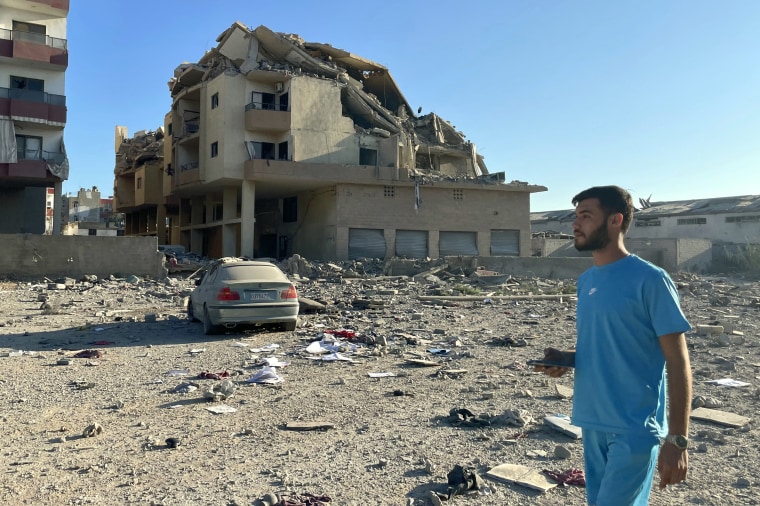
Austin went so far as to say that diplomacy is the only way to find resolution, “not a military solution.” A war between Hezbollah in Lebanon and Israel would be devastating for everyone involved, the defense secretary added.
“I know that our diplomats continue to engage each other on this issue,” Austin said. “I am confident that they’ll continue to find a way to to do just that.”
19 Syrians killed in Israeli attack on Lebanon, health ministry says
Lebanon’s Ministry of Health said today that an Israeli strike on the town of Younin, in the country’s northeast, killed 20 people, 19 of whom were identified as Syrian nationals.
There are an estimated 1.5 million Syrian refugees living in Lebanon, displaced there due to the ongoing Syrian civil war, which began in 2011. Nine in 10 refugee households in Lebanon live in extreme poverty, according to the United Nations High Commissioner for Refugees.
Around 100,000 people are on the move, Lebanon’s UNICEF representative says
BEIRUT — There are around 100,000 people on the move and about 70,000 people living in shelters after they fled Israel’s bombardment in southern Lebanon, the country representative for UNICEF told NBC News today.
“People have lost everything,” Édouard Beigbeder said at the National Nahda School in the country’s capital, Beirut. “They have lost their houses or their friends were injured or killed, or siblings. They had to flee in a few hours and they don’t foresee the future.”
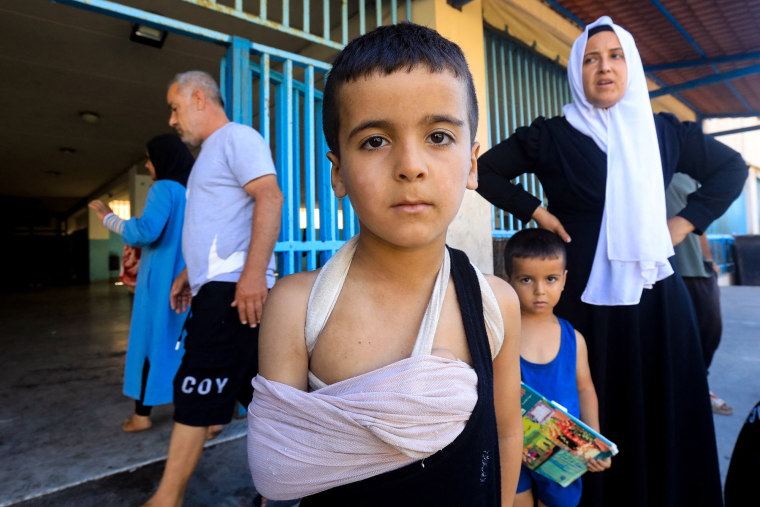
“I think it’s a race against the clock and we need to help them and not only that but we need to ensure that these kids who are quite traumatized by what they have seen have proper care,” he added.
But he said the first requirement for those displaced “is water and non-food items as we are distributing today.”
Palestinian Authority president urges nations to stop ‘war of genocide’ because Palestinians ‘will not leave’
“We will not leave. We will not leave. We will not leave,” Palestinian Authority President Mahmoud Abbas said in the opening of his United Nations General Assembly address today.
Abbas insisted that Palestinians will not leave behind their homelands as he accused Israel’s military of decimating Gaza, which is ruled by PA’s rival, Hamas, and areas of the West Bank. He accused Israel of waging “a war of genocide,” an allegation Israel has denied, describing its war in Gaza as self-defense against terrorism.
“Hundreds, hundreds of Palestinian families have been annihilated. Entire family names have been wiped out of the civil record,” Abbas said. “More than 100 families … no longer exist.”
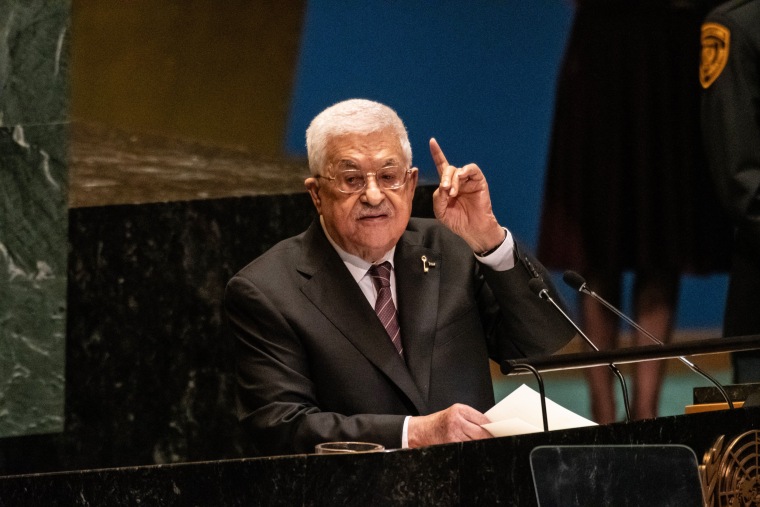
The vast majority of Gaza’s population of 2 million have been internally displaced, and more than 15,000 children have been killed, according to the health ministry. Abbas urged the U.N.’s member states to “stop the genocide” and stop the arming of Israel as innocent civilians continue to be killed and forced to live in squalor.
“This madness cannot continue,” Abbas said. “The entire world is responsible for what is happening to our people in Gaza and the West Bank.”
Could Israel use crisis in Lebanon as a pretext to attack Iran’s nuclear facilities?
Israel says its aims in Lebanon are simple: allow the 60,000 evacuees to return to their homes near the Lebanese border, push back Hezbollah forces and destroy the militant group’s nearby infrastructure.
But some experts question whether there might be another motive: use the Lebanon crisis as a pretext to attack Iran’s nuclear facilities. Since then-President Donald Trump pulled out of the Iran nuclear agreement in 2018, Iran has been advancing toward becoming a nuclear weapon state, international monitors say. Iran also funds and arms Hezbollah.
One “concern is that Israel’s government may be using the Lebanon attacks as a way to create the option of a future attack on Iran’s nuclear facilities,” Bronwen Maddox, the chief executive of London think tank Chatham House, wrote in a briefing Tuesday.
Israel and Iran have already traded direct attacks this year, with Israel destroying part of an S-300 air defense system that the Center for Strategic and International Studies think tank called an “implicit threat against Iran’s most important military capabilities — particularly its nuclear infrastructure.”
Far from wanting to de-escalate, Netanyahu “does not mind, in fact, the intervention of Iran,” agreed Mustapha Kamel Al-Sayyid, a politics professor at Cairo University. The prime minister’s office declined to comment on this suggestion.
Israeli government says it secured $8.7 billion in aid from U.S.
An $8.7 billion aid package for the Israeli military from Washington has been finalized, according to a statement from Israel’s Ministry of Defense.
The package includes $3.5 billion already received for “critical acquisitions” for the Israel Defense Forces and another $5.2 billion dedicated to Israel’s air defense, such as the Iron Dome.
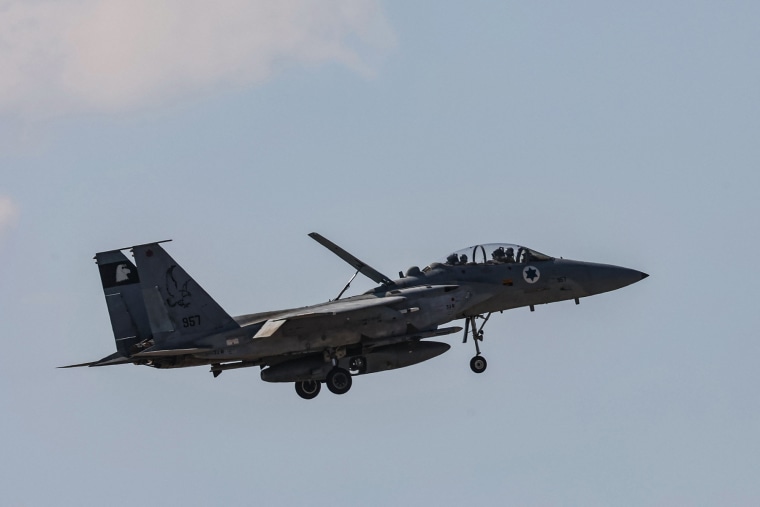
Blinken says delivering a cease-fire is beneficial to Netanyahu
Speaking with MSNBC’s “Morning Joe” today, Secretary of State Antony Blinken pushed the U.S. proposal for an immediate 21-day cease-fire between Israel and Hezbollah, saying it can help bring about a longer-lasting diplomatic resolution.
Blinken’s stated stance is in direct opposition to that of Israeli Prime Minister Benjamin Netanyahu, whose public comments insist that ramping up hostilities against Hezbollah is the way to return thousands of displaced Israelis to their homes near the border with Lebanon.
Blinken was asked whether Netanyahu believed a cease-fire was beneficial to him or whether the prime minister views a diplomatic end to the war as the end of his career, with domestic corruption allegations looming over him.
Blinken said he would not speak for Netanyahu, but noted that the return of Israelis to the north is “animating” Israeli society. He later added, “I think someone who delivers that, yes, that’s going to be for their benefit.”
Rashida Tlaib calls for Blinken to resign
Rep. Rashida Tlaib, D-Mich., called on Secretary of State Antony Blinken to resign following a ProPublica investigation into his response to findings regarding Israel’s obstruction of aid into Gaza.
In a post on X today, Tlaib wrote that Blinken “lied. People went hungry, and some died. He needs to resign now.”
The ProPublica article published Tuesday reported that both the U.S. Agency for International Development and the State Department’s refugees bureau concluded that Israel had deliberately blocked deliveries of food and medicine into Gaza, though Israel has denied this.
Despite those findings, Blinken told Congress in May that the U.S. did not believe Israel was prohibiting or otherwise restricting aid. He told “TODAY” following the report that it was his job to “sort through” different assessments and that’s what happened.
Hezbollah says it rebuffed two Israeli warplanes from Lebanese airspace
Hezbollah issued a statement today saying its aerial defense attacked two Israeli warplanes and “forced them to leave Lebanese airspace.”
The statement alleges that the warplanes came in toward the sea and were in Lebanese airspace.
Israel’s military said its fighter jets struck dozens of Hezbollah targets in Lebanon, including weapons storage facilities, but did not mention whether any of its planes were attacked.
For Lebanese in the shadow of the war, hope for a cease-fire is tempered with doubt
Reporting from Zouk Mosbeh, Lebanon
Hopes in Lebanon are high for a cease-fire that would bring an end to the aerial assault that has killed hundreds of people and left hundreds of thousands more displaced — but some have also expressed doubt around the possibility of even a temporary truce, while others have said they fear it won’t solve the current crisis.
“This week, our lives have been turned upside down and it feels like we are living in a nightmare, not knowing when it will end,” Rachelle, a 28-year-old freelance interior designer who did not provide her surname, told NBC News. “We strongly support the cease-fire and are praying for it to happen because it offers a glimmer of hope, a chance for people to breathe and feel safe again.”
Karma Tabet, a 33-year-old sound engineer, said calls for a cease-fire deal between Israel and Hezbollah felt too similar to the months of calls for a truce between Israel and Hamas, with no cease-fire deal in sight, nearly a year into the war in Gaza.
“In my opinion … Israel is putting conditions and is sure that Hezbollah will never accept them. At the same time Israel’s military opinion is against the cease-fire, because to them, the battle will decide,” Tabet said.
Meanwhile, Roula, a 63-year-old woman who identified herself as a housewife and did not provide her surname, said she was against a cease-fire, saying she did not believe it would “help the Lebanese people who lost their homes, their businesses in the south.”
Roula further said she feared that a cease-fire might give Hezbollah an “advantage” to “manipulate the country,” signaling the anger some feel toward Hezbollah for its role in the hostilities. “If Hezbollah accepts to give his arms to the Lebanese government, of course, I am with the cease-fire now,” she said. “Otherwise we will go back to same situation every couple of years.”
IDF says it targeted Hezbollah drone commander in Beirut strike
The Israel Defense Forces accused the target, Muhammad Hossein Surur, of being a project leader for Hezbollah’s production of unmanned aerial vehicles, more commonly known as drones. In its statement, the Israeli military said he led many drone attacks against Israel since the start of the Israel-Hamas war. Hezbollah has not confirmed his death.
Lebanon’s state-run National News Agency reported earlier that a building was hit in southern Beirut.
People are asked to avoid the Al-Qaem neighborhood as paramedics and rescue teams respond to the scene. Lebanon’s public health ministry said two people were killed and 15 others were injured, including a woman in critical condition.
Taiwan prosecutors say four questioned over pager explosions
Four people have been questioned so far over the pager explosions that tore across Lebanon last week. The devices carried a Taiwanese brand, prosecutors confirmed to NBC News.
Taiwan-based Gold Apollo said it did not manufacture the devices used in the attack, and Taiwan’s government said the pagers were not made in the country.
A spokesperson for the Shilin District Prosecutors Office in Taipei, which has been leading the probe into Gold Apollo, said this morning that the “investigation is proceeding swiftly and rigorously.”
In addition to two people questioned last week, two current or former employees of the company were also interviewed as witnesses, the prosecutor’s office said.
Assassinations of Hezbollah chiefs will affect its morale, analyst says
Israel’s ability to assassinate senior Hezbollah officials shows that the group is “exposed to Israeli intelligence to an unprecedented level.” That’s according to Filippo Dionigi, an international relations scholar and Hezbollah specialist at England’s University of Bristol.
Israel has taken out numerous high-ranking Hezbollah figures, including the chief of its elite Radwan forces, Ibrahim Aqil, and some of his deputies. Israeli Defense Minister Yoav Gallant said this week that the strikes have left Hezbollah chief Hassan Nasrallah isolated.
This “certainly has an impact” on the group’s “morale and partly on their capacity to operate under the stress of constant surveillance from the enemy,” Dionigi told NBC News. However, the 40-year-old organization “has had all the time to recruit and train new generations of fighters.”
“This means that ‘decapitating’ the military leadership of Hezbollah will have an impact that is more limited compared to younger and less long-lasting organizations, such as Islamic State, for example,” he added. “Hezbollah is likely to have sufficient trained personnel to replace its losses.”
Official number of registered displaced people in Lebanon passes 70,000
The number of people officially registered as being displaced in Lebanon has reached at least 70,100, Lebanon’s interior minister said in a news conference in Beirut.
Interior Minister Bassam Mawlawi said the tens of thousands of people were seeking refuge across 533 shelter centers as he called for more aid to help respond to the mounting crisis.
The official total only reflects those staying in shelters, so the total number of people displaced by Israeli strikes in Lebanon will be much higher. Many are staying in hotels or with family, while thousands have also fled to Syria, in hopes of finding relative safety in the country still in the midst of a civil war.
The United Nations has said nearly 200,000 people in Lebanon have been internally displaced since nearly a year of hostilities began between Israel and Hezbollah following Hamas’ Oct. 7 attacks, while in northern Israel roughly 60,000 people have been displaced.
Farmers in southern Lebanon afraid to ‘leave their land,’ despite fears
Reporting from Zouk Mosbeh, Lebanon
Farmers in parts of southern Lebanon are afraid to leave their land, worried that without it, they will have no way of making a living, a local official told NBC News.
Nazih Yahya, a member of the municipality of Kfarchouba in the Nabatieh Governorate, said that even before Israel began ramping up its strikes, many families in the village were already struggling to get access to basic commodities.
“We live in exile,” Yahya said. He noted that many people fled Kfarchouba earlier this year as hostilities mounted between Israel and Hezbollah, but that dozens of families remained in the village and other areas nearby.
“Most of the residents are farmers, and they don’t want to leave their land, because they have no other alternative to make their living,” he said. Asked how they were getting by, he said residents received “some donations” from humanitarian organizations, politicians and local officials.
Children in northern Israel attend school inside a bomb shelter
Ultraorthodox Jewish students play soccer as they attend lessons inside a bomb shelter in Israel’s northern city of Safed.
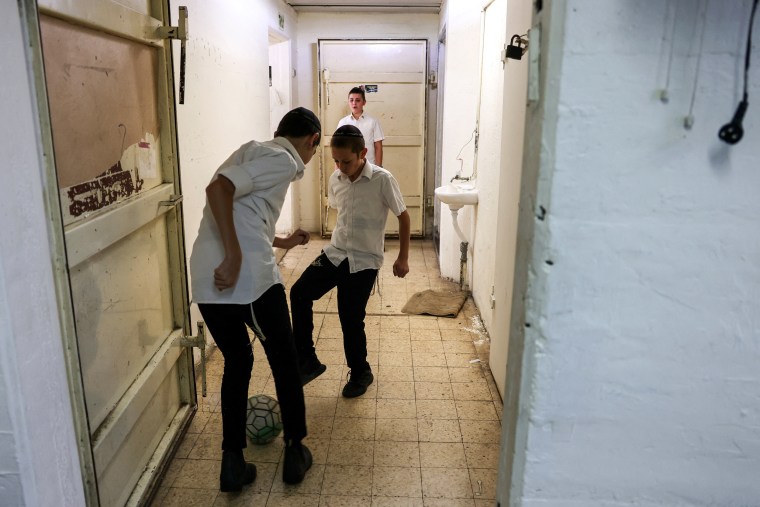
Qatar says there is currently no official mediation for Israel-Hezbollah cease-fire
There is currently “no official mediation process in place to work toward a cease-fire in Lebanon,” Qatar’s foreign ministry spokesman Majid bin Mohammed Al-Ansari said in a media briefing.
“We are unaware of any direct link between the cease-fire proposal for Lebanon and the cease-fire proposal for Gaza,” he said, adding that Qatar had “warned from the first day of the danger of the war extending beyond the Gaza Strip.”
Israeli troops carry out exercise to prepare for a potenial ground invasion in Lebanon
The IDF says its soldiers are carrying out an exercise “simulating maneuvers in Lebanon” this morning, despite rising calls from the international community for a cease-fire to prevent further escalation of hostilities between Israel and Hezbollah.
The IDF said the training exercise took place a few kilometers from the Lebanese border and made it clear that troops were preparing for the possibility of ground operations in Lebanon.
During the exercise, troops “enhanced their operational and logistical readiness for various combat scenarios in enemy territory on the northern front,” the IDF said.
Israeli military says it is currently carrying out strikes in Beirut
The IDF did not say where exactly it is launching the strikes on the Lebanese capital.
The Lebanese National News Agency has reported a loud explosion in Beirut’s southern suburbs.
‘There are no words that can describe the fear and anger’
Reporting from Zouk Mosbeh, Lebanon
For Imad Komeiha, Monday, Sept. 23, the day Israel ramped up its deadly strikes in Lebanon, will always be known as “Black Monday.”
“There are no words that can describe the fear and anger,” Komeiha, a journalist and activist, told NBC News. He, his wife and four childrem fled from their home in Kfar Sir in southern Lebanon to Chiah, a southern suburb of Beirut, though Israel’s strikes have hit near this area too.
His wife and four children fled first, Komeiha said. He followed after his neighbor was killed during heavy bombing in Kfar Sir. The journey to Chiah was gutwrenching, he said. “It breaks your heart, to see all those villages empty and destroyed.”
Komeiha said he wanted to see United Nations Security Council Resolution 1701, which set out the terms for a cease-fire in the 2006 war between Israel and Hezbollah, applied. The U.S. and other nations put have forward a proposal for a 21-day cease-fire that would allow for negotiations between Israel and Hezbollah, which neither side has so far accepted.
Israel launches strike along Syria-Lebanon border, where thousands have fled
Israeli fighter jets struck an area along the Syria-Lebanon border that the IDF said was being used by Hezbollah as a route to transfer weapons.
Lebanese transport minister Ali Hamieh told news agency Reuters that the Israeli strike hit the Syrian side of a small bridge that crossed into Lebanon. It was not immediately clear whether anyone was killed or injured in the strike.
The United Nations refugee agency has warned of a mounting humanitarian crisis at the border between Lebanon and Syria, as some of the tens of thousands of dispalced people escaping Israeli airstrikes amassed there. Hundreds have been killed by the strikes in recent days.
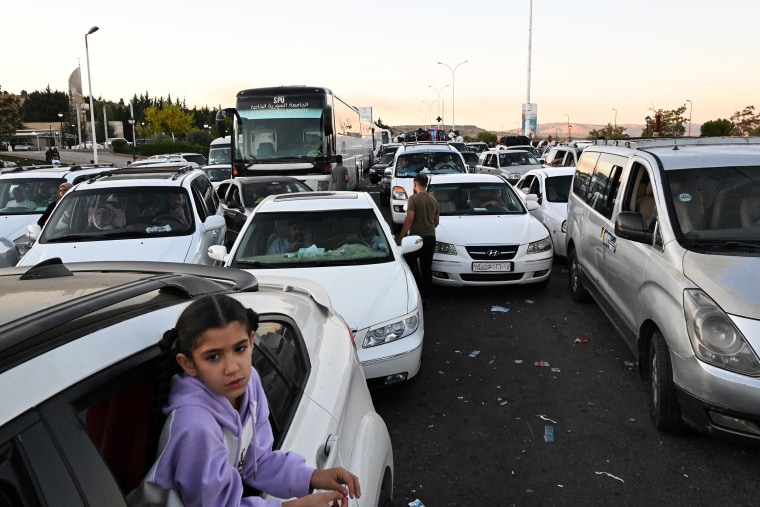
Video and photos shared by the agency showed roadways filled with vehicles, their rooftops loaded with bedding and other possessions. Crowds of others, including children, arrived at the border on foot. UNHCR said many arrived after fleeing “dire conditions, with some carrying nothing but plastic bags filled with their belongings.”
“Today we have seen literally thousands of families of Syrian and also Lebanese crossing into Syria, UNHCR representative Gonzalo Vargas Llosa said, speaking from the Syrian side of the border in a video shared online last night. “They are fleeing the escalating violence in Lebanon,” he said.
Many of the Syrians now seeking refuge in their home country are people who have already been displaced by a brutal conflict — survivors of Syria’s own ongoing civil war, which began in 2011. Now, they find themselves returning, displaced once again by the threat of violence.
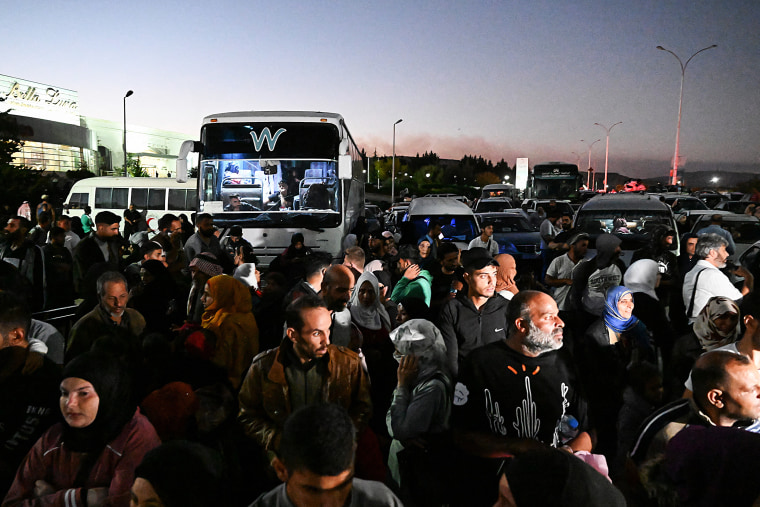
“It is yet another ordeal for families who previously fled war in Syria only now to be bombed in the country where they sought shelter,” said Filippo Grandi, UN High Commissioner for Refugees in a statement shared by UNHCR. “We must avoid replaying these scenes of despair and devastation. The Middle East cannot afford a new displacement crisis. Let us not create one by forcing more people to abandon their homes. Protecting civilian lives must be the priority.”
‘Hell is breaking loose in Lebanon,’ U.N.’s Guterres warns
United Nations Secretary-General António Guterres urged the U.N. Security Council to “work in lock-step” to end mounting hostilities between Israel and Hezbollah as he warned that “hell is breaking loose in Lebanon” amid Israeli airstrikes that have killed hundreds and forced tens of thousands to flee their homes.
Noting that exchanges of fire between Israel and Hezbollah had “expanded in scope, depth and intensity,” Guterres said yesterday that residents who have been displaced on both sides of the Israel-Lebanon border “must be able to return to their homes and live in safety and security without fear.”
According to the U.N., nearly 200,000 people in Lebanon had been internally displaced as of yesterday, while more than 60,000 people in northern Israel have also been displaced from their homes.
“I implore the Council to work in lock-step to help put out this fire”, the U.N. chief told ambassadors as he warned that an all-out war “must be avoided at all costs” and “would surely be an all-out catastrophe.”
Netanyahu bound for New York ahead of UNGA address
Netanyahu is expected to arrive in New York this morning, with the Israeli leader set to address the United Nations General Assembly tomorrow, Israeli Ambassador Danny Danon told reporters last night.
The Israeli prime minister could be seen in photos and videos shared by his office boarding a flight bound for New York alongside his wife, Sara Netanyahu, early this morning, local time.
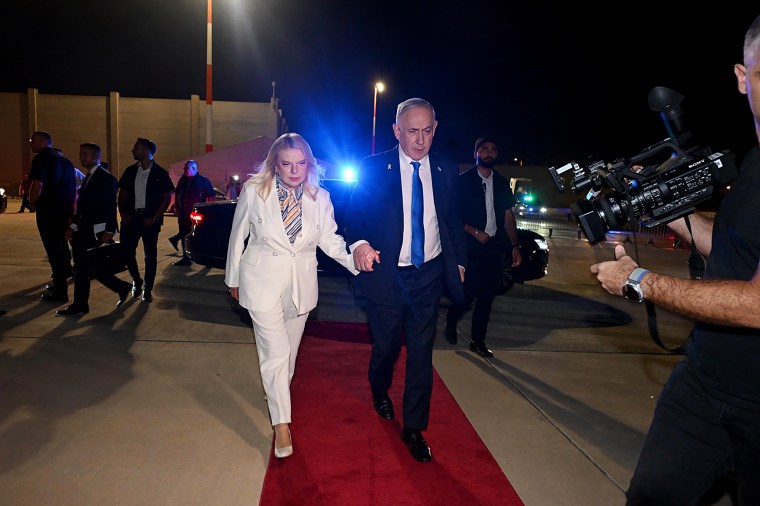
Images show Israeli airstrikes across Lebanon
Israel continued to strike targets across Lebanon today even as the U.S. and allies call for a 21-day ceasefire.
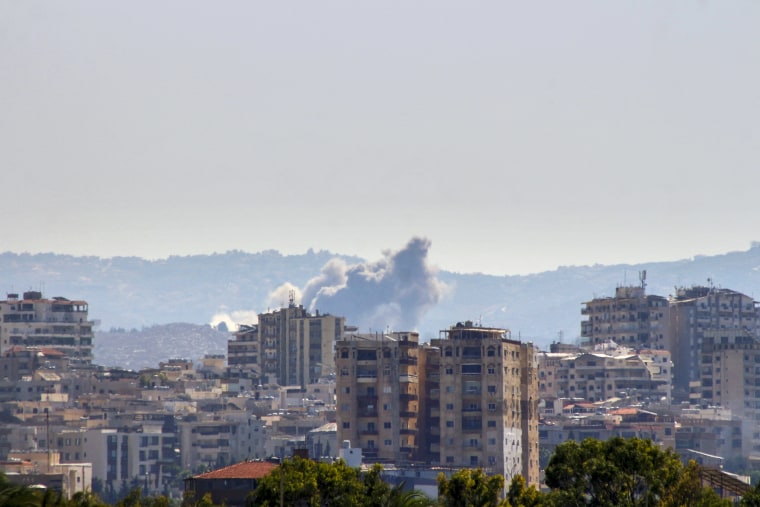
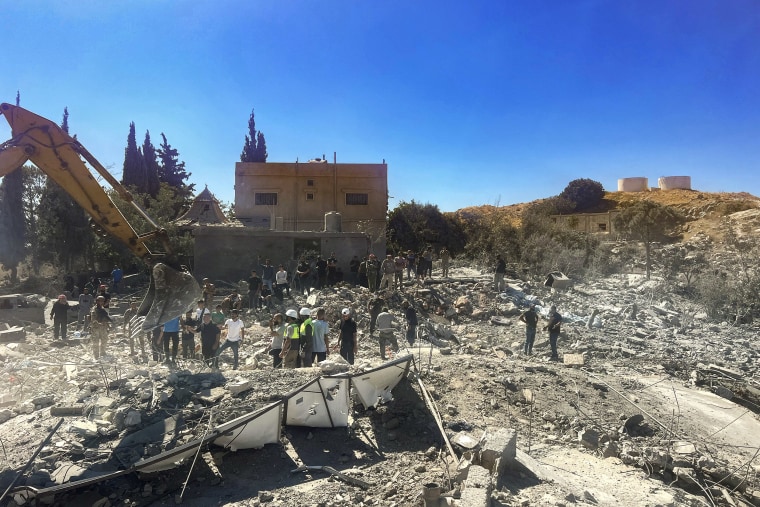
Lebanese PM denies signing cease-fire proposal, despite expressing optimism
The office of Lebanon’s Prime Minister Najib Mikati has denied reports that he signed a cease-fire proposal put forward by the U.S., despite the leader expressing optimism for a truce that would allow for negotiations between Israel and Hezbollah.
Mikati’s office said reports he had signed an agreement were “absolutely incorrect.”
Lebanon’s PM had expressed hopes that a cease-fire deal could be reached to halt mounting violence that has killed hundreds in Lebanon and forced hundreds of thousands to flee their homes.
Asked if a cease-fire could be secured soon, Mikati told news agency Reuters: “Hopefully, yes.” But, welcoming calls for a truce, he said the key to a cease-fire being implemented was whether Israel would be committed to enforcing international solutions.
Israel’s Foreign Minister Israel Katz said in a post on X this morning there would be “no cease-fire in the north.”
‘There will be no cease-fire in the north’: Israeli foreign minister
Israeli Foreign Minister Israel Katz has said there will be “no cease-fire in the north.”
“We will continue to fight against the terrorist organization Hezbollah with all our might until victory and the safe return of the residents of the north to their homes,” he said in a post on X this morning.
Netanyahu’s office said earlier that the Israeli prime minister had not yet responded to the U.S.-led proposal for a 21-day cease-fire that would allow negotiations between Israel and Hezbollah to take place.
Gaza war deadliest conflict on record for journalists
More than 100 reporters have been killed in Gaza, according to the International Federation of Journalists. In addition to the dangers, the media is facing increasing crackdowns.
NBC News’ Hala Gorani provides an in-depth report on journalists caught in the crossfire as the conflict between Israel and Lebanon escalates.
Right-wing Israeli lawmakers hit out at cease-fire call
Right-wing members of Netanyahu’s government have struck out at calls for a 21-day cease-fire to curb mounting hostilities between Israel and Hezbollah.
Finance Minister Bezalel Smotrich said in a post on X this morning that Hezbollah must “not be given time to recover” and that the only way to see Israeli residents who have been displaced from their homes in northern Israel and secure the area was “the surrender of Hezbollah or war.”
He said he believed Israel’s operations should only “end in one scenario — crushing Hezbollah and denying its ability to harm residents in the north,” using wording similar to that used to describe Israel’s ongoing campaign in Gaza, where more than 41,400 people have been killed, according to local health officials, since Israeli forces launched their offensive following Hamas’ Oct. 7 terror attacks.
Israeli opposition leader Yair Lapid suggested that Israeli leadership should agree to a cease-fire, but only for 7 days “in order not to allow Hezbollah to restore its command and control systems,” adding: “We will not accept any proposal that does not include removing Hezbollah from our northern border.”
Israel says it has not yet responded to U.S. cease-fire proposal
Netanyahu’s office this morning shut down a report suggesting a cease-fire could soon be announced, saying the news was “incorrect.”
“This is an American-French proposal, to which the prime minister did not even respond,” his office said of the 21-day cease-fire deal proposed by the U.S. and allies.
Netanyahu’s office further said reports about a “supposed directive to moderate the fighting in the north” was “also the opposite of the truth.”
“The Prime Minister instructed the IDF to continue the fighting with full force, and according to the plans presented to him,” it said, amid mounting hostilities between Israel and Hezbollah. “Also, the fighting in Gaza will continue until all the goals of the war are achieved,” it added.
The statement from the Israeli leader’s office, came as Netanyahu himself is aboard a flight to New York where he will address the UNGA.
IDF continues to strike Lebanon, says ‘projectiles’ fired into Israel
After sirens and sounds of blasts rang out in northern Israel, the IDF said around 45 “projectiles” had been identified crossing from Lebanon. It said some were intercepted, while the rest fell in open areas.
The IDF also said it was continuing to strike targets in Lebanon, saying that Hezbollah military sites and weapons storage facilities were among the sites hit. It also said “a number of” militants were hit in the area of Kfarchouba in southern Lebanon, but did not provide further information.
Israel says its campaign is targeting Hezbollah, but Lebanese officials have reported more than 600 people killed.
Images show damage in Southern Lebanon after Israeli airstrike
Images taken this morning show destruction in the Masaken neighborhood near the city of Tyre in southern Lebanon, following an Israeli airstrike.
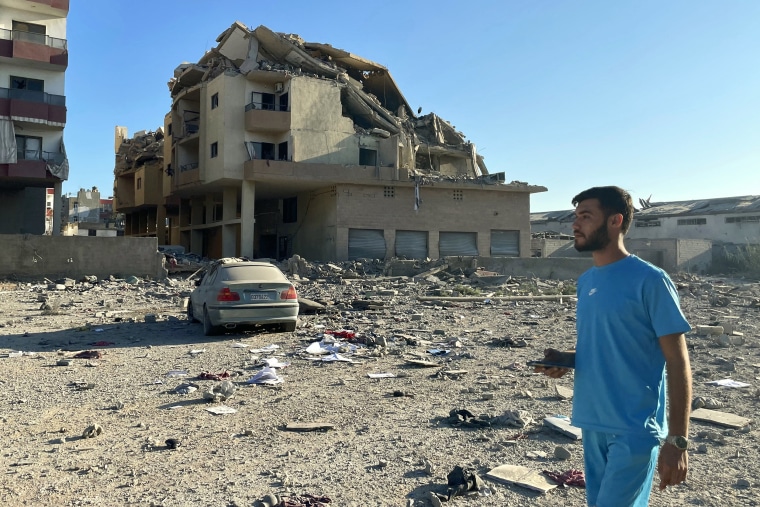
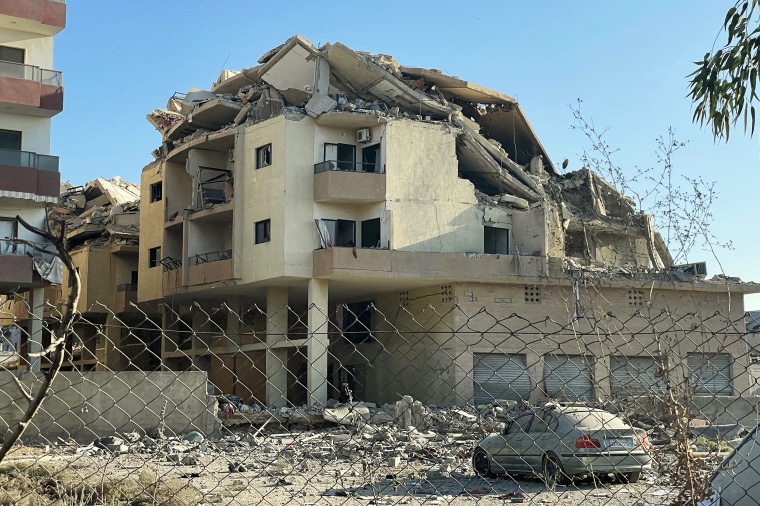
Blasts heard near Haifa by NBC News team
Blasts could be heard ringing out near the northern Israeli port city of Haifa this morning, NBC News’ team on the ground said, as sirens sounded in the area.
The IDF said in a post on Telegram around 8:45 a.m. local time (1:45 a.m. ET) that sirens were sounding in parts of the Upper Galilee area in northern Israel. It had yet to issue any further statement on possible aerial attacks targeting the area.
Israel has a robust aerial defense system, though rockets and missiles fired by Hezbollah can and do get through.
Israel hammers Bekaa Valley and southern Lebanon with strikes
Israel continued to hammer southern Lebanon and the Bekaa Valley with airstrikes overnight into Thursday, with the Israeli military saying it hit around 75 targets, all of which it said belonged to Hezbollah.
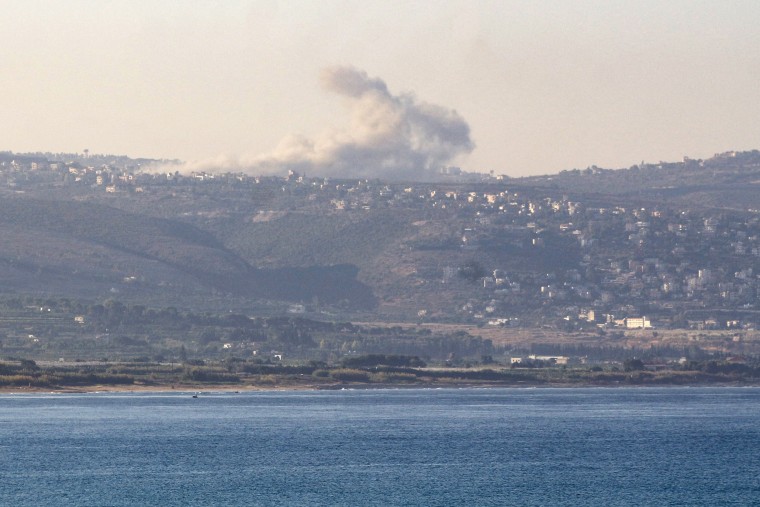
The Israel Defense Forces said “weapons storage facilities, ready-to-fire launchers, terrorists, and terrorist infrastructure” were among the targets hit as the military said it continued its operation in a bid to “dismantle and degrade Hezbollah’s capabilities” and infrastructure.
Israel’s strikes have had a deadly toll in Lebnaon, with more than 600 people, including dozens of children, killed since Monday, about half the number of people killed over the 34 days of fighting during the 2006 war between Israel and Hezbollah.
Meanwhile, hundreds of thousands of people have been displaced from southern Lebanon, fueling fears of a developing humanitarian crisis in a nation that has been hard hit by economic and political crisis, as well as the impacts of the Port of Beirut explosion and the Covid-19 pandemic.
U.S. and others call for cease-fire as fears grow of all-out war
The U.S., European Union and nearly a dozen other nations have called for an immediate 21-day cease-fire in order for negotiations between Israel and Hezbollah to prevent the possibility of an all-out war in the region.
President Joe Biden warned yesterday that the feared outcome was possible, but that there was an “opportunity” for “a settlement that could fundamentally change the whole region,” as Israel also continues its deadly offensive in Gaza nearly a year after Hamas’ Oct. 7 attacks.
Meanwhile, in Lebanon, hundreds of people have been killed and hundreds of thousands displaced, with Israel continuing to hammer parts of the Bekaa Valley and the south with airstrikes overnight.
Read the full article here





